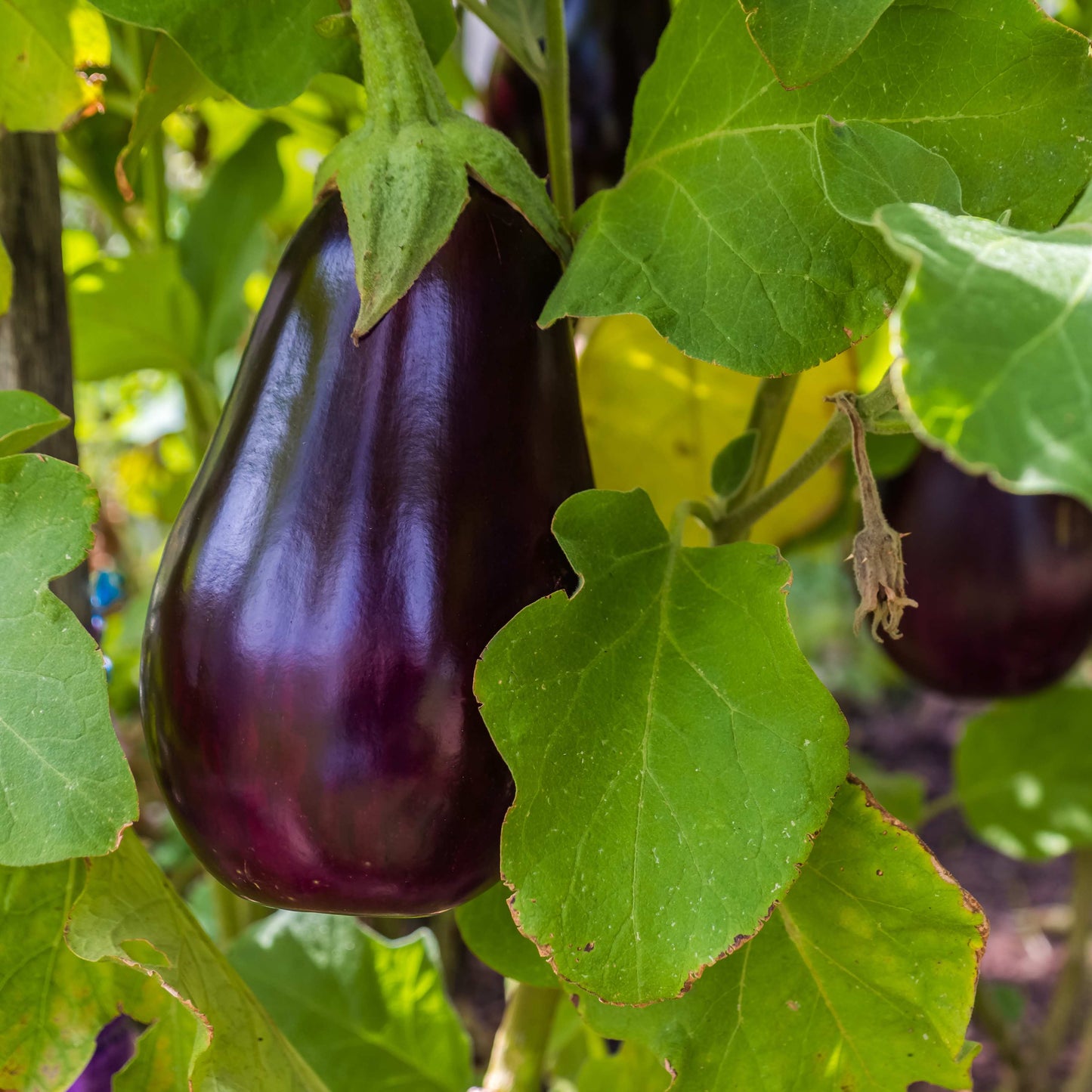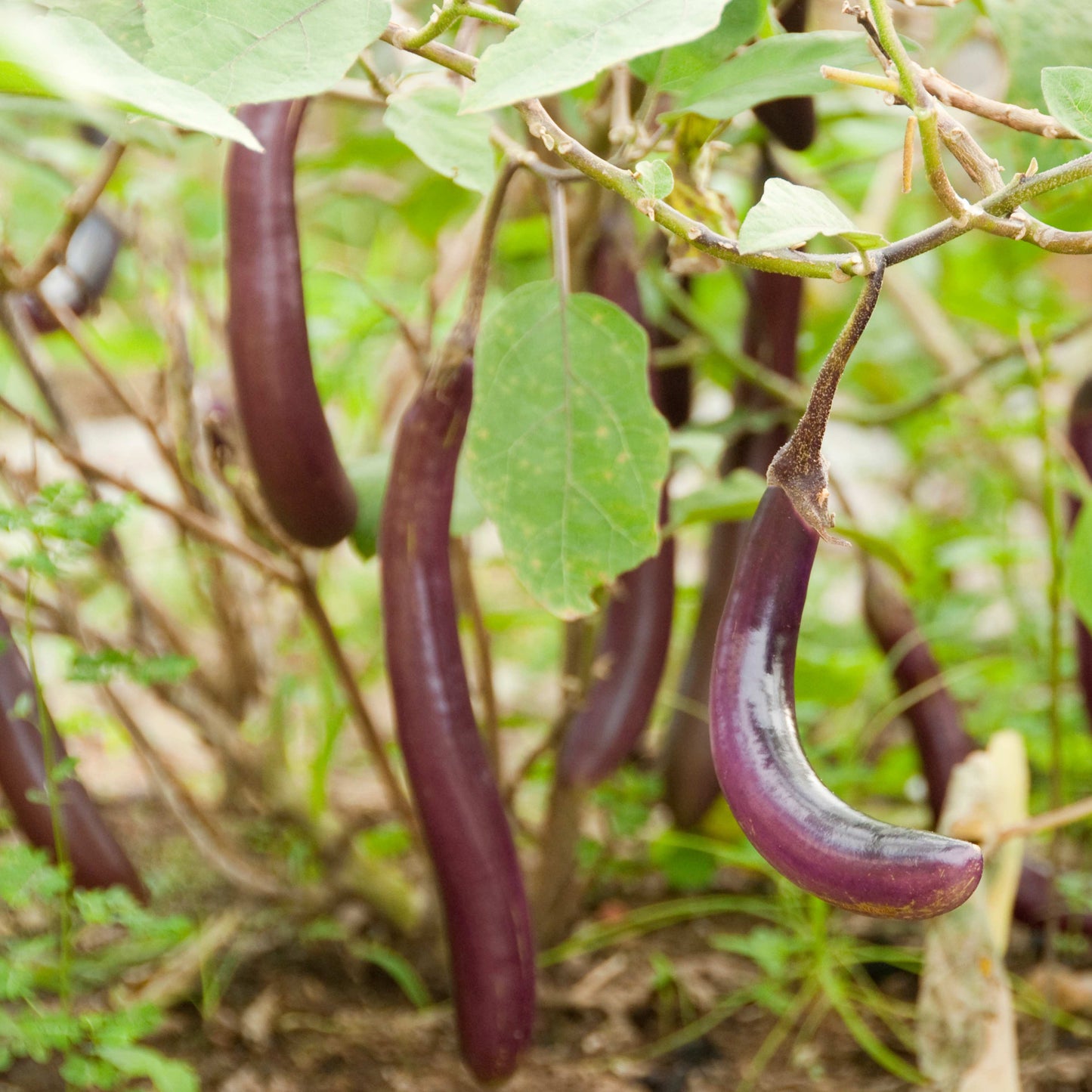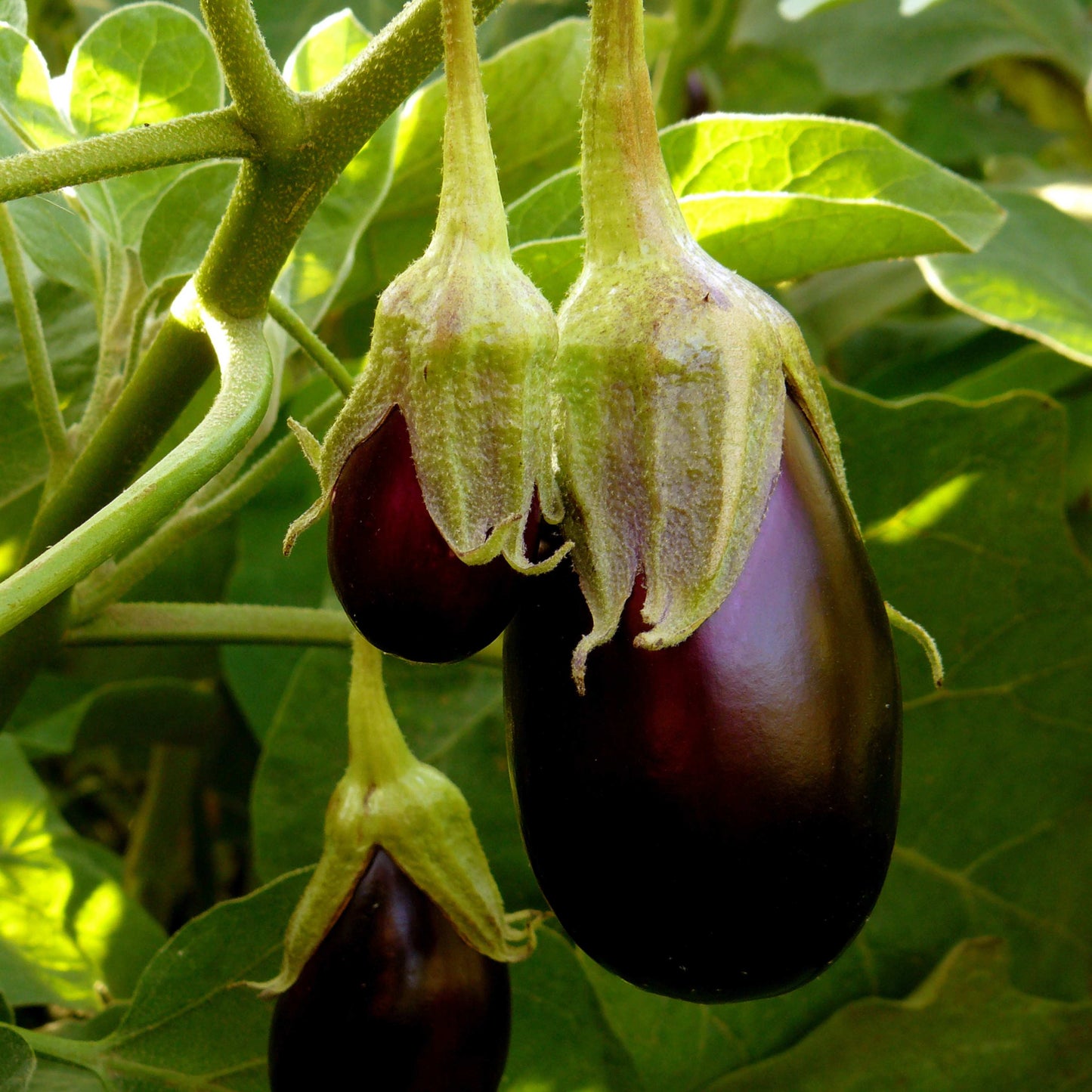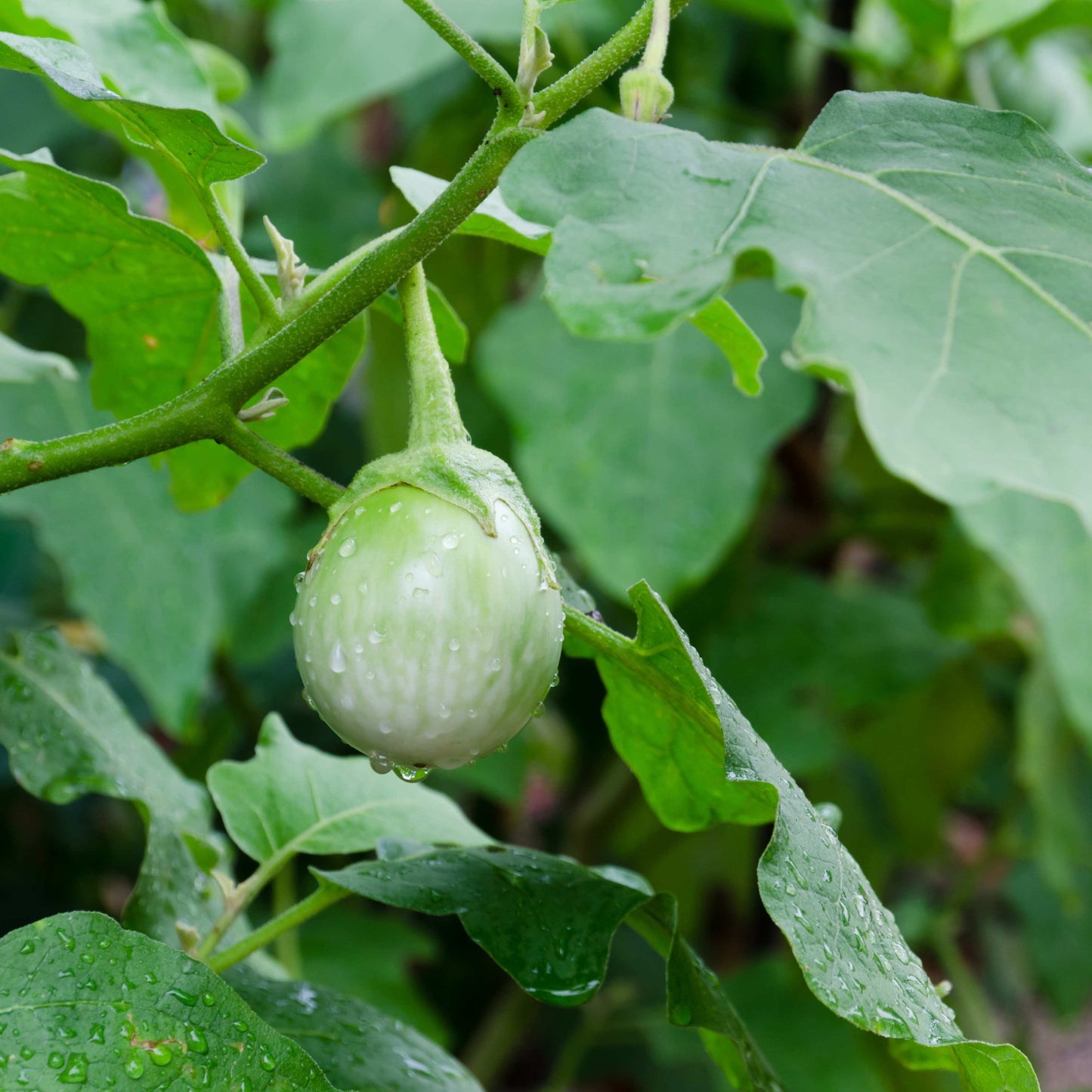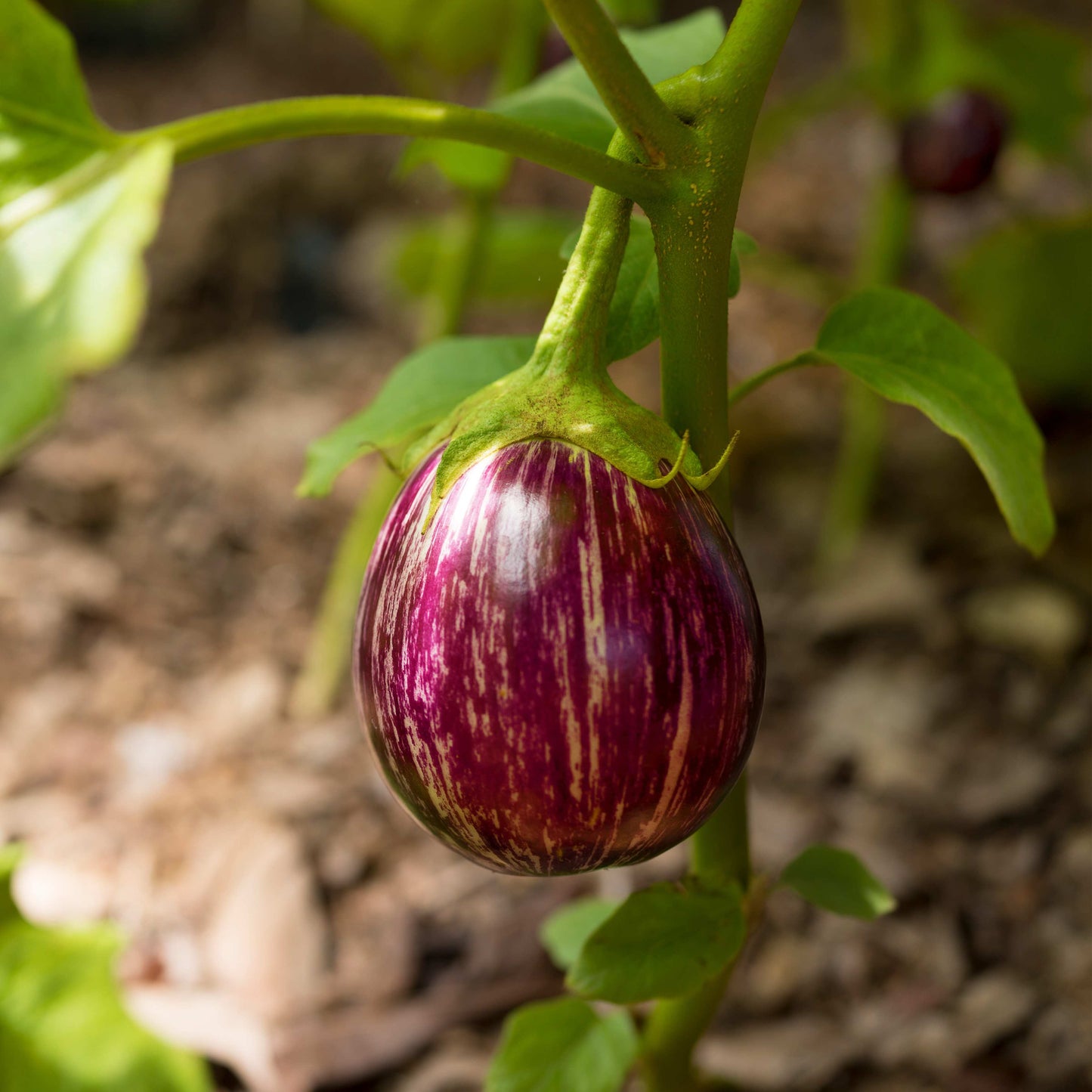We clean up after ourselves.
Ecommerce deliveries have a carbon footprint. That's why we support verified projects that remove carbon from the air.



Every delivery’s carbon footprint is calculated based on weight, shipping method, and distance traveled. We neutralize these emissions by purchasing verified carbon removal credits from groundbreaking projects.



With your purchase, you’ll join a community of proactive merchants and customers dedicated to a sustainable future. Together, we've removed emissions for over 51 million deliveries and removed over 38 thousand tonnes of carbon.

We work with a network of pioneering carbon removal companies that have been vetted by the commerce platform Shopify.

Passion For Plantation
100Pcs Organic Eggplant (Solanum melongena) Seeds
100Pcs Organic Eggplant (Solanum melongena) Seeds
Couldn't load pickup availability
Bring the rich flavors and versatile culinary uses of eggplant to your garden with our Organic Eggplant Seeds (Solanum melongena). Eggplants, also known as aubergines, are a staple in Mediterranean and Asian cuisines, prized for their meaty texture and ability to absorb flavors. With our certified organic seeds, you can grow pesticide-free eggplants at home, adding freshness and nutritional value to your favorite dishes.
Features
- Certified Organic Seeds: Our eggplant seeds are certified organic, ensuring that your home-grown eggplants are free from synthetic pesticides and chemicals.
- Variety of Types: Choose from a range of eggplant varieties, including classic large-fruited types like Black Beauty, Japanese eggplants, Italian heirlooms, and compact container varieties.
- Nutrient-Rich: Eggplants are low in calories but rich in vitamins, minerals, and antioxidants like vitamins C, K, B6, potassium, and fiber, supporting a healthy diet.
- Versatile Culinary Uses: Use fresh eggplants in dishes such as ratatouille, moussaka, baba ganoush, curries, stir-fries, grilled eggplant, and more.
- Easy to Grow: Eggplants are relatively easy to grow, thriving in warm climates and well-draining soil, making them suitable for gardeners of all levels.
Benefits
- Fresh and Flavorful: Enjoy the delicious taste and meaty texture of home-grown organic eggplants, enhancing the quality of your culinary creations.
- Nutrient-Packed: Eggplants offer a range of health benefits, including heart health, weight management, digestion support, and antioxidant protection.
- Culinary Versatility: Explore a variety of eggplant recipes from different cuisines, adding diversity and creativity to your meals.
- Educational and Rewarding: Gardening with organic eggplant seeds is a rewarding experience that promotes sustainability, healthy eating habits, and a deeper connection to food.
- Cost-Effective and Convenient: Save money and trips to the store by growing your own eggplants at home, ensuring a fresh supply whenever you need them.
Planting Instructions
- Timing: Start sowing eggplant seeds indoors 6-8 weeks before the last frost date or purchase seedlings for transplanting after the danger of frost has passed.
- Soil Preparation: Choose well-draining, fertile soil with a pH of 6.0-7.0. Amend with compost or aged manure for added nutrients.
- Seedling Care: Provide adequate light, warmth, and moisture for seedlings to grow strong before transplanting outdoors.
- Transplanting: Harden off seedlings gradually and transplant them outdoors in a sunny location with protection from strong winds.
- Spacing: Space eggplant plants 18-24 inches apart in rows or use containers with sufficient depth for root development.
Growing and Care
- Watering: Keep the soil consistently moist but not waterlogged. Water deeply and regularly, especially during hot weather, to promote healthy growth.
- Fertilization: Use a balanced organic fertilizer or compost at planting and side-dress with compost during the growing season for optimal nutrition.
- Support and Pruning: Stake or cage tall varieties to support the weight of the fruit. Prune overcrowded branches and remove diseased leaves for better air circulation.
- Pest and Disease Management: Monitor for pests like aphids, flea beetles, and spider mites. Use organic pest control methods such as neem oil or insecticidal soap as needed. Prevent fungal diseases by avoiding overhead watering and promoting good airflow.
Harvesting
- Timing: Harvest eggplants when they reach the desired size and color. Young eggplants are usually more tender and flavorful.
- Method: Use pruning shears or a sharp knife to cut eggplants from the plant, leaving a short stem attached. Handle them carefully to avoid bruising.
